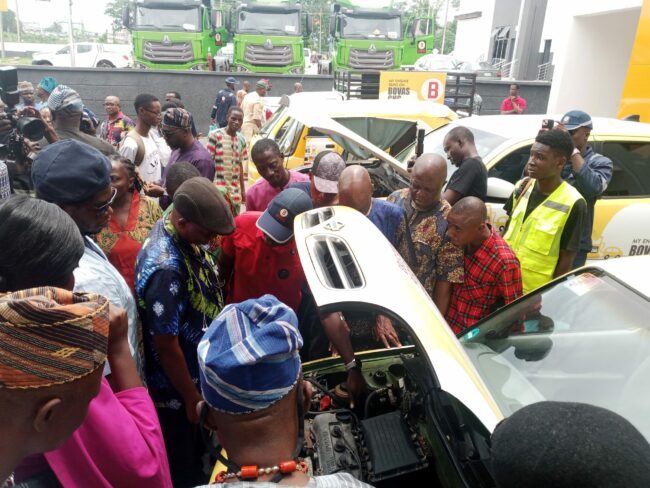The federal government is targeting conversion of 100,000 cars from petrol or diesel fuel to Compressed Natural Gas (CNG) powered by end of the year.
Programme Director/Chief Executive Officer, Presidential CNG initiative, Mr Micheal Oluwagbemi made this disclosure at a meeting with stakeholders at Bovas service station Ajibode, Ibadan, on Friday.
According to Oluwagbemi, the target is in line to have 1 million cars converted to being gas-powered by the year 2027.
The meeting saw the P-CNGi boss disclose that a conversion incentive programme will begin in the coming weeks where persons using petrol and diesel-powered vehicles will be able to convert their vehicles at designated affiliates at discounted prices, based on specified pre-qualifications.
Oluwagbemi stated that the federal government would pump over 11,500 CNG-powered vehicles into the transport sector with mass transit, commercial operators as major beneficiaries.
Though ambitious, he said the 2027 target was achievable, as he implored Nigerians to embrace a cheaper, safer, cleaner, more reliable fuel alternative in CNG.
On refueling, Oluwagbemi said there was a plan to set up 1,000 conversion workshops, over 3000 refueling stations, 36 mini-CNG stations and mobilise N2.5 billion dollars worth of investment.
Speaking further, the federal government representative said there was the plan to have conversion centres and training centres on campuses, starting with the University of Abuja.
Representative of the Standard Organisation of Nigeria (SON), Mr Adetoyi Adeyinka allayed fears of explosion, saying the CNG kits usually passed 80 standardisation tests.
Executive Director, BOVAS, Mr Samson Temitope also clamoured for adoption of CNG-powered cars, describing them as one that guarantees users savings on fuel for more than 60 per cent.
On questions about the high cost of conversion to the tune of about N500,000, Temitope explained that the adoption of CNG was more cost-effective in the long run as he added that there was also a flexible payment mechanism.
Stakeholders at the event urged the federal government to ensure the involvement of students in tertiary institutions to have hands-on skills such that the CNG kits can be produced locally as against the current practice of importing them.
